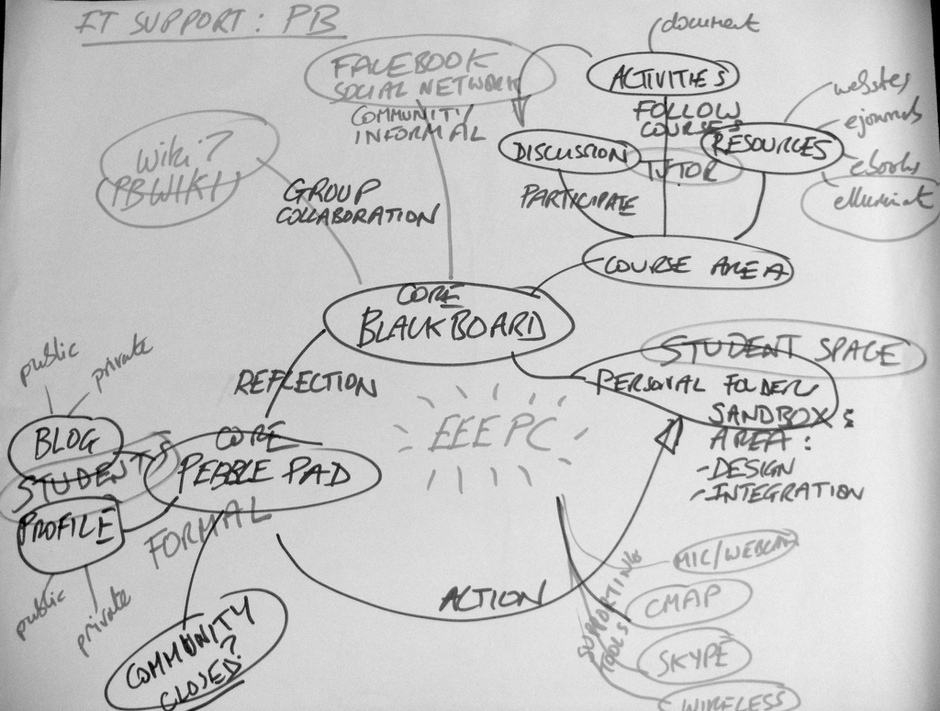
Technology – with the important caveat of when it is used properly – is adding significantly to every area within our events. We see it playing a supporting role, through the cell or tablet, in amplifying the content within via Social Media.
Technology helps our participants be more interactive through hand held devises; be that paddles for voting; “bump” technology for networking or RFID chips for tracking their every move.
We also see technologies tentacles reach into the rooms where we hold our events. Wires and cables transport content, through live or recorded feeds, into geographical areas we could otherwise never even dream of hoping to reach!
Is there nothing that technology can’t do for us?
Although I have given a brief summary of three areas in which technology impacts our events, in my mind technology has four major roles in supporting the events industry, and each area is of equal importance.
However when I attend trade shows, read industry blogs or speak to organizers and technology companies one particular area never seems to get a mention. An area I deliberately didn’t cover in my introduction. Any ideas?
The missing role for technology
A few months ago in London I asked a room full of Event Organizers at an event “Who uses event management software to help them manage their event?” I wonder if you are surprised by the answer: not one of them did. That’s right, from a broad selection of organizations (thirty in total) not one used technology to support the events they were running. So in this Blog post I have decided to look at that a little bit deeper, here’s four areas that struck me initially:
- None of the organizers were using technology to help them report back to stakeholders, clients or their managers.
- No one was using software to help them share information on the progress of tasks across their team.
- None of the organizers budgets were being automatically populated by actual income and expenditure.
- Event Managers were not using technology in a structured way so that their work could be easily replicated and risk assessed by their stakeholders, clients, managers or by themselves.
Now of course some of the above can be replicated the old fashioned way by relying on paper, attachments and a mix of Microsoft platforms. But when organizers do this it re-emphasizes the point that technology has to be used to help organizers: it can move them away from the time consuming administrative tasks to really adding value. As well as improving our events, using technology also has one other major benefit: we appear much more professional.
How professional are we? And how professional are we viewed by others?
I now pose the question I proceeded to ask those attendees in the UK “Imagine I had asked accountants or project managers or architects if they used technology to support them in their roles?” They agreed as I am sure you will every one of those other professionals would use technology to support their job.
Doesn’t this difference strike you as a little weird? Isn’t it rather odd that other ‘professionals’ simply wouldn’t be employed if they didn’t use and understand technology that supported their role?
It isn’t just organizers it’s organizations too!
As an event consultant in Europe many of my clients ask for advice and support in implementing technology in the four very distinct areas I covered earlier. Here are the four areas in descending order form most to least requested by clients:
- Attendee engagement
- Hybrid / web casting
- Amplification of their event
- Helping manage and support their events
The first three are very important but here we see again at the very bottom of the pile the “priority” of the technology that actually supports our organizers.
Does demand simply match supply?
If so few organizers are looking for this type of technology and so few companies produce this technology does this mean that I am worrying about the wrong thing? You could say that the market is playing its’ role, matching demand to supply and I would agree: if I didn’t see the massive and positive impact that event management technology can play. The organizers who use it see it:
- supporting their organization to run better events
- allowing them to focus on more valuable tasks
- demonstrating that we really are professional!
When I work in an organization very often the biggest impact I can have is when I help their organizer use technology to support the management of their events.
What role should the events industry play?
Technology has a crucial role in supporting the credibility of organizes and, owing to this, the use of technology has to be championed by the industry. When we don’t use technology to manage our events we are effectively saying: “Events are simple, easy, basic things and anyone can organize them”. This cannot be good for the professionalism of our industry.
No one should ever be in favor of technology for the sake of it. The perceived and the actual lack of professionalism within events will not simply disappear with a wider uptake of technology within the management of our events: but it will help.
So where to look in the meantime?
Sites like this and events such as Tech-Fest have to gain more traction in our industry. We have to be more open to technology and we have to fully grasp its’ role in supporting not just our events but us as organizers. We have to use it as a way to demonstrate our understanding and control of our events. We need to use it as a structure to help us avoid mistakes and deliver better events.
Image – Steven Warburton
William Thomson
Latest posts by William Thomson (see all)
- Technology – The Missing Piece for Meetings and Events - January 10, 2013

